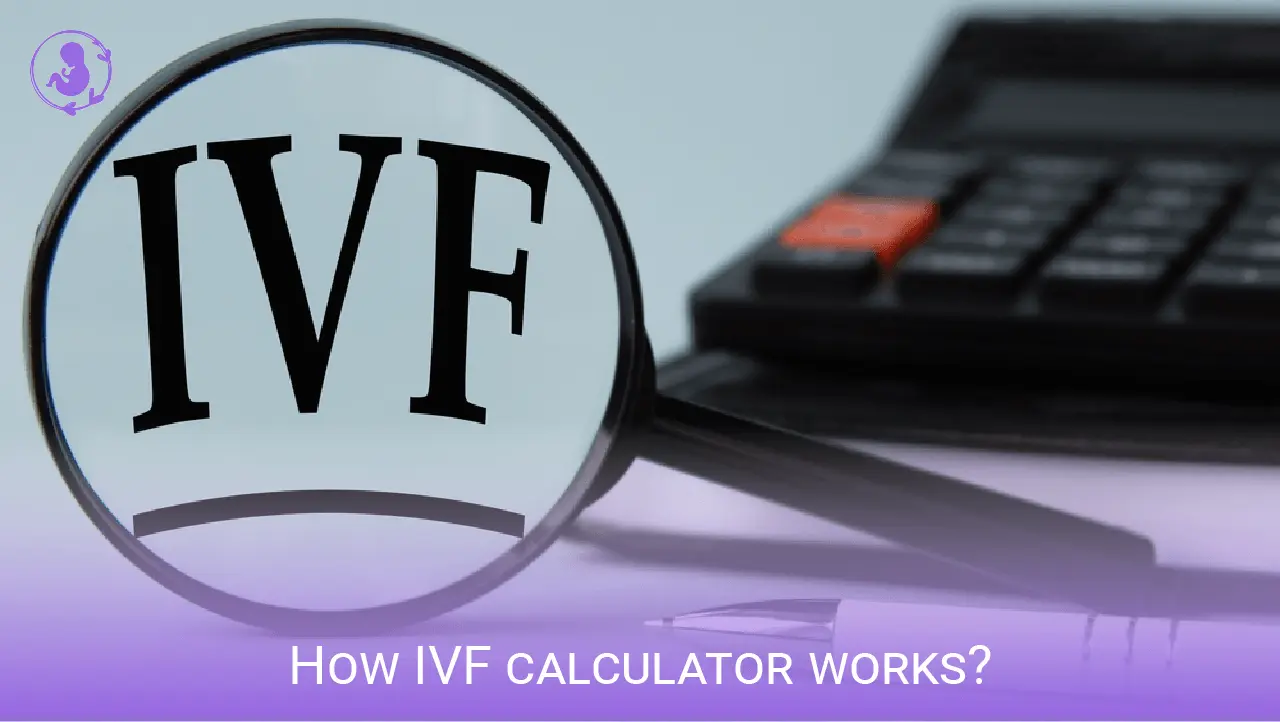How IVF calculator works A must-know mechanism for new Moms
Are you a new mom considering IVF? Wondering how an IVF calculator works? Look no further! This article will guide you through the must-know mechanism of IVF calculators.
With its easy-to-use interface, the calculator helps determine your estimated due date based on the embryo transfer date. By taking into account the type of IVF procedure and the age of the embryos, this tool provides valuable insights for planning the arrival of your baby.
Let’s dive in and explore the benefits of using an IVF calculator.
The Significance of IVF Calculators
The IVF calculator is a helpful tool for new moms. It provides accurate and precise information about their due date and the possibility of twins or triplets.
Having an accurate due date is important in IVF pregnancies because it allows moms to properly prepare for the arrival of their baby. It helps them plan their prenatal care, make necessary arrangements, and anticipate the birth of their child.
When using an IVF calculator, there are certain factors that need to be considered. These include the type of transfer, whether it is a three-day or five-day embryo transfer, and the specific IVF procedure used.
By inputting these details into the calculator, moms can get a more accurate estimation of their due date. Comparing the IVF due date with a natural conception due date can also help alleviate anxiety for new moms.
It allows them to see the difference in timing and understand that IVF pregnancies have their own unique timeline. This knowledge can provide reassurance and peace of mind during the pregnancy journey.
Additionally, IVF calculators can be used to track prenatal development. They provide information about the baby’s growth and development at different stages of pregnancy. This allows moms to stay informed and connected with their baby’s progress.
Overall, the IVF calculator is an invaluable tool for new moms. It provides accurate due date information, helps alleviate anxiety, and allows moms to track their baby’s prenatal development.

Understanding the Mechanism Behind IVF Calculators
Understand how you can use an IVF due date calculator to estimate your baby’s arrival.
When going through the IVF journey, there are several factors that can affect success rates. It’s important to be aware of these factors and the challenges that may arise along the way.
Emotional support is crucial for couples undergoing IVF, as it can be a physically and emotionally demanding process. Additionally, diet and lifestyle choices can play a role in IVF success, so it’s important to maintain a healthy lifestyle.
Before considering IVF, it may be worth exploring alternative fertility treatments that could potentially be effective.
Step-by-Step Guide to Using an IVF Calculator
To estimate your baby’s arrival, input the necessary information into IVF due date calculator and consult with your healthcare provider for the most accurate information.
Factors affecting IVF due dates include the type of transfer (3-day or 5-day embryo transfer), the use of own eggs or donor eggs, and the age of the embryos. Once you have entered all the required details, the IVF calculator will provide you with an estimated due date for your pregnancy.
Interpreting IVF calculator results is straightforward. The calculator will give you a specific date when your baby is expected to arrive based on the information you provided.
It’s important to remember that this is just an estimate and not a guarantee. Your healthcare provider will be able to provide you with more accurate information based on your specific circumstances.
To use an IVF calculator effectively, make sure to enter the correct information, including the transfer date and the type of transfer. Double-check your entries to ensure accuracy.
Also, keep in mind that IVF due dates may differ from natural conception due dates. IVF pregnancies have a shorter due date by about two weeks compared to natural pregnancies.
There are some common misconceptions about IVF due date calculations. It’s important to understand that these calculations are estimates and not an exact science.
Only 4 percent of babies are born on their actual due dates, whether conceived naturally or through IVF. It’s also important to consult with your healthcare provider for the most accurate information regarding your specific situation.
Benefits of Using an IVF Calculator for New Moms
Get accurate and reliable estimates for your baby’s arrival by using an IVF due date calculator, providing you with peace of mind during your pregnancy journey. When going through the IVF process, it’s important to have all the information and support you need.
Our IVF calculator can help you in several ways. Firstly, it can give you an idea of your due date based on the date of embryo transfer. This can help you plan and prepare for your baby’s arrival.
Secondly, it can provide you with information about your IVF success rates, giving you a better understanding of your chances of getting pregnant. This knowledge can give you hope and reassurance during the sometimes emotional rollercoaster of IVF.
Additionally, an IVF calculator can help you navigate the financial considerations of IVF by giving you an estimate of when you may need to start budgeting for your baby’s arrival.
Lastly, it can assist you in choosing the right fertility clinic by providing you with information about the success rates of different clinics.
Overall, using our IVF due date calculator can help you cope with the wait during the IVF process, providing you with a sense of control and understanding as you embark on your journey to becoming a parent.
How IVF Calculators Can Help Plan for the Arrival of Your Baby
Use our IVF due date calculator to easily plan and prepare for your baby’s arrival. This will provide you with peace of mind during your pregnancy journey.
IVF calculators offer several benefits for fertility clinics. They ensure accurate predictions of due dates for IVF pregnancies. These calculators have been proven to be highly accurate, taking into account factors such as the type of transfer and the age of the embryos.
By providing expectant parents with an estimated due date, IVF calculators greatly reduce stress and uncertainty. This allows them to better plan for the arrival of their baby.
IVF calculators also play a crucial role in family planning decisions. They help couples determine the best time to undergo IVF treatments.
Additionally, IVF calculators serve as a valuable tool for tracking pregnancy milestones. Expectant parents can monitor the progress of their pregnancy and celebrate each milestone along the way.
Read More On IVF






